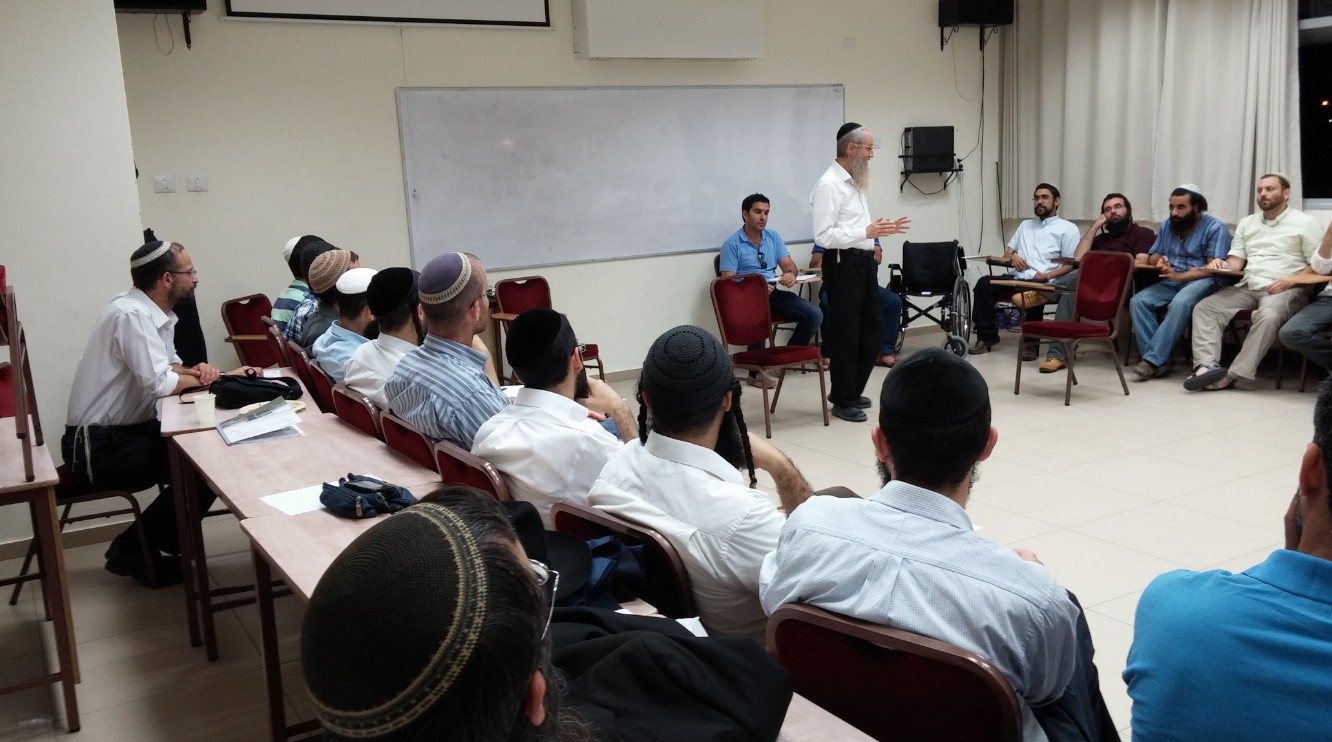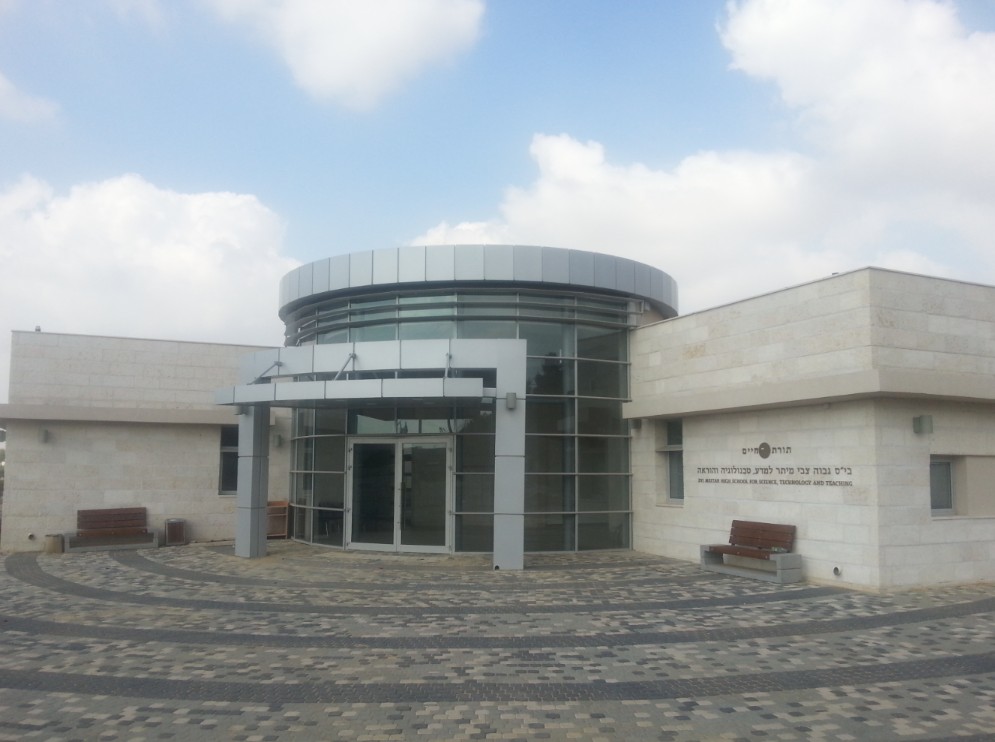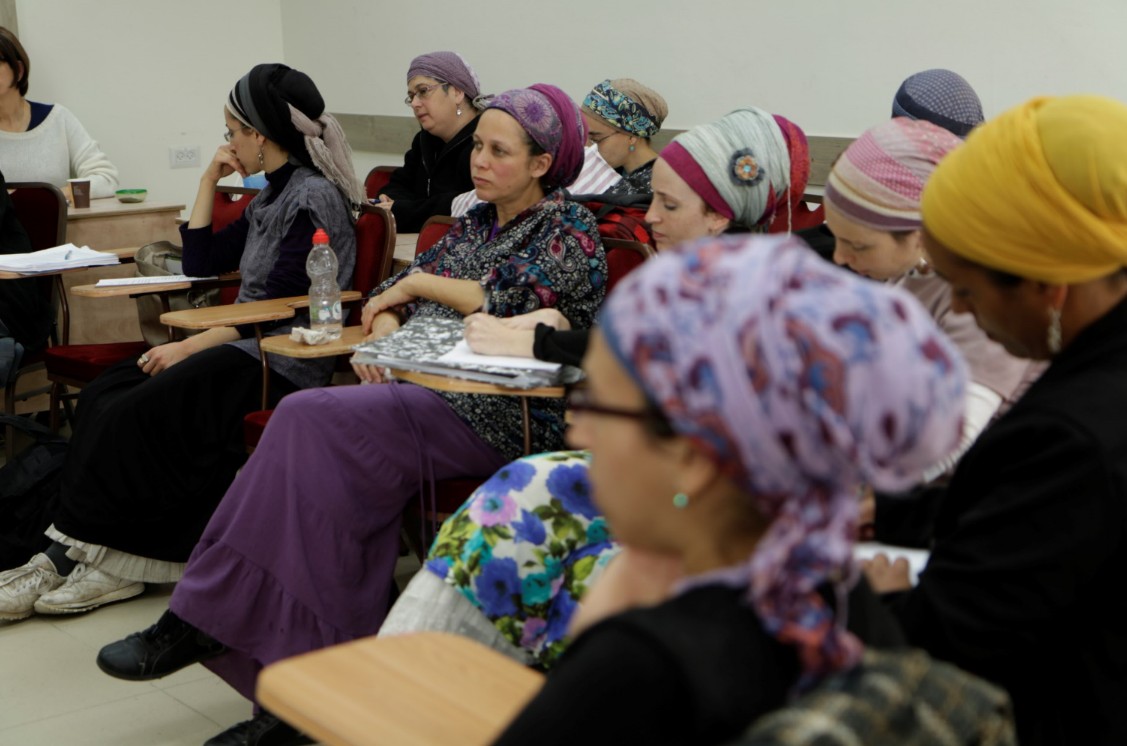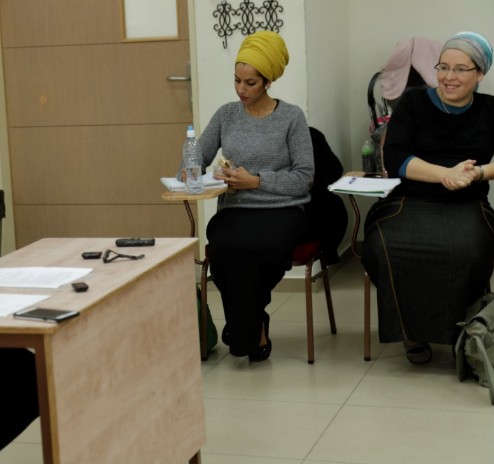"Those Facing Mental Challenges Are Not Defective – They're Heroes with a Great Mission"
Or Harnik, the director of the 'Torat HaChaim' School of Psychology from a Torah perspective, discusses in an exclusive interview his journey to faith, the school's methodology, miracles he has witnessed, and the thousands who have regained hope and light in their eyes thanks to the school's graduates.

One of the most significant messages of our generation, and arguably the most important, is the return of Torah to all realms of life. The divine presence is slowly but surely returning to various spheres of our lives. In recent years, the field of psychological therapy based on Judaism has greatly evolved. More and more people assert that our Torah, as vast as the sea, must provide quality solutions to life’s pivotal issues, and it is our role to delve deep until we find such answers. In this context, I met Or Harnik, the director of the School for Personal Empowerment and Therapist Training at Torat HaChaim, who precisely focuses on this issue—teaching methods for the human psyche based on our holy Torah.
The school campus, located at 'Zvi Meitar' House in Yad Binyamin, is welcoming and spacious. The adherence to halacha (Jewish law) is evident from afar, including the strict separation between men and women.
Or is a 'baal teshuva,' like many of the school's graduates and students. "I originally hail from Nataf, near Mevasseret Zion," says Or. "I grew up in what is considered a 'good home,' secular and staunchly left-wing. How much so? Let's say we would eat bread on Passover. Midway through my military service in the Nahal, our group was placed in Nitza to work with youth from the secular communities expelled from Gush Katif. However, I was particularly drawn to the religious youth, and after much effort, I managed to become a youth counselor for religious communities."

And amidst all of this, what drew you closer to Hashem?
"Several events set the process in motion. One was during a Shabbat in Nitza, where I attended a Shabbat meal with a religious family. They lived in a temporary, dilapidated cabin placed in a neglected and uninviting area. However, inside, the home was filled with light unlike anything I had experienced. Many children, a bit cramped, but none of it bothered them. On the contrary, there was a familial atmosphere of strength and unity that captivated me. There was something in the Torah beyond mere slogans. It was evident that people were living what they believed in. Over time, I started attending youth kollel with my students, listened to classes, and stayed afterwards with the rabbi of the kollel to ask the tough questions. The entire reality there projected genuine inner truth. For the first time, I saw kids who could be rowdy in school but would sit seriously and lovingly with the rabbis at the local youth kollel in the evening."
"I wasn’t in any crisis leading me there, but the discussions were genuine and piercing. Over time, as the truth of the Torah became clearer to me, I began to draw closer, understanding that this was the right way of life for me. Throughout this process, I learned that the more sincerely a person confronts themselves and the more courage they have to ask questions and seek answers, the more joyous, stable, and whole their life becomes. And this is also how the school’s method works."
Light at the End of the Tunnel
So what exactly is your uniqueness? There are many places that teach psychology.
"Our school was established ten years ago by Rabbi Shmuel Tal, head of the Torat HaChaim institutions, due to an increasing demand for genuine religious solutions for the challenges people face. There is a large and faithful audience seeking professional and effective solutions for mental distress from a religious perspective. When you think about it, this is very logical and fundamental in the eyes of a believer.

"In essence, psychology is not 'wisdom,' which we are told to trust when found among the nations; it is "Torah," of which we are told "Torah among the nations—don’t believe them." Hence, throughout the ages, great Jewish leaders have engaged and guided in this field. We believe the Torah teaches us more than just Shabbat laws; it touches every aspect. It is a guide for life, especially in the realms of healing and character refinement. The Torah is light at the end of the tunnel, even in the most difficult and complex cases. That's why we teach how to operate with our school's central method—the Observation Method."
What is the Observation Method?
"Observation, at its core, as taught by the Ramchal, involves an individual pausing from the race of life to dedicate time to internal reflection on their actions and life, assessing how they want their life to look and if their actions are good. From there, a person must think about how they can further advance and refine themselves. At our school, this concept has been refined and developed, and to explain it, I will give a brief introduction. A natural mechanism present in every person is to interpret their surroundings. A child whose father often yells at him won't just describe the event in his head but will try to interpret and explain why it happened. One child might think—Dad yelled because he's cruel. Another might think—because I'm not successful and a bad kid. The third—because Dad got up on the wrong side of the bed.
"Thus, a person accumulates various perceptions about everything in life, about themselves and everything around them, which, consciously or unconsciously, govern them. A child who believes his father yelled at him because he's not successful will likely choose a job they think suits unsuccessful people or give up quickly when things don't go well because he considers himself unsuccessful, starting a negative cycle. Observation is a multi-step method helping a person achieve high internal listening, identify these governing perceptions, detach from them, and replace them with true and positive perceptions."

"A primary part of the students' training is deep personal work on themselves, aiming to reach high awareness of what's happening in their psyche and practical learning of how to undergo internal change. Almost half the study hours are invested in workshops, where students reach deep places in their souls. We do not certify someone unless we see they’ve undergone a meaningful process during their studies. This is the Torah's guidance, and it’s simple: For someone to understand others, they first need to understand themselves. If someone struggles with anger or lack of confidence and cannot advance and solve it, they won’t be able to help others with the same issue."
Additionally, what other training do the students undergo?
"Besides the personal work accompanied by our teaching staff, there are theoretical studies. Students learn about the structure of the psyche, receive orderly treatment outlines, understand the roots of psychological phenomena, and the methods of addressing them to provide them familiarity with the human psyche akin to a doctor's knowledge of the body."
I’ve heard your institution also runs a 'Therapy Center.' What can you share about it?
"Rabbi Tal also established a therapy center using our method, and we work in full cooperation with them. The center currently has dozens of highly professional therapists, receiving hundreds of inquiries each year. Rabbi Tal himself is very involved in all happenings, guiding the center spiritually and professionally. The center provides solutions in all psychological areas—personal empowerment, marital harmony, child education, depression, anxiety, and more. Naturally, complete confidentiality is maintained throughout this process."
The Miracle of Marital Harmony
With many positive things emerging in this conversation, there remains a significant known challenge in the profession Or has chosen. During our talk, these issues often emerge. The difficult stories rapidly arriving in the field of psychological therapy are usually hard to hear. As a result, I asked Or where he finds the strength needed for such complex work. "I truly believe with all my heart that Torah holds the solution to the great distress in our generation regarding mental health, and it is immensely satisfying to see this faith materializing and significant changes in people's lives. From lives filled with suffering and hardship to lives filled with joy and light, all through the Torah."
Can you give us an example of a story you've encountered? Of course, maintaining anonymity.
"I remember particularly one client from the center who came to me with his story. His wife sent him to the therapy center because at some point in their relationship, she realized there was something wrong with his behavior. According to her, he was very quiet before marriage, they dated briefly, got married, and she quickly became pregnant. Now she noticed that the quiet and attentive demeanor he projected during their meetings actually masked an inability to communicate properly. Not only that, she noticed that she'd ask one thing, and he'd respond to something else entirely. In short, she simply wanted a divorce.

"Through therapy, it became apparent that he had experienced severe trauma in the past and had developed an unconscious amnesia mechanism. The reason he couldn’t manage a conversation or respond appropriately was because during the conversation, he'd forget what he was talking about. Due to his fear of being exposed, he tried to maintain the flow of the conversation even without remembering what had been previously said.
"Of course, I can’t fully recount his entire process here, but I can say that by the end, he looked back at his past and managed to contain what he went through. His natural memory returned to him, and conversations with him became smooth and pleasant. *B"H*, that negative mechanism was overcome. I must say, witnessing someone, despite all the struggles and adversities they faced, returning to function, uplifting themselves and their family, gaining tools and strength, and all in the path of the Torah—that's the most fulfilling experience there is."
In a brief tour around the school, I sensed a general sense of optimism in the air. Perhaps it's connected to your overall approach?
"Indeed. Our perspective on challenges, which characterizes our method, is another aspect I believe significantly distinguishes our school. Our outlook is that those receiving treatment have nothing to be ashamed of or feel wrong about due to the challenges they are facing. Even if they currently face challenges larger than others, it does not mean they are defective or lost, *chas v’shalom*. On the contrary, they are heroes given a great mission by Hashem, and the fact they work on themselves is immensely valuable and precious.
"It’s a simple truth in Judaism: Every hardship one receives does not come accidentally, but for their benefit and growth. This naturally leads to an optimistic outlook that, *B"H*, everything can be addressed. With Hashem’s help, in many cases, people simply get their lives back: their marriage, relationships, livelihood, peace, faith, trust in Hashem, love of Hashem, and love for themselves. This is mainly what drives us to continue investing so much emotional effort in this precious and great cause."
Email address for the school: jfschool1@gmail.com

